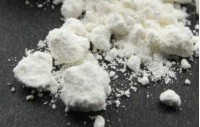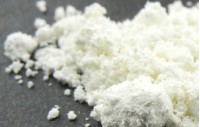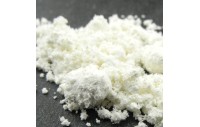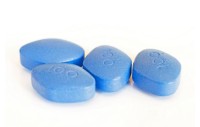
Buy Methoxphenidine for sale online - USA vendor

- FREE shipping, 6-7 days delivery time
- Inner sending exist.
The main payment option is Bitcoin. As extra ways WU, MG.
We alwayse provide FREE samples of Top products with the main order.
Loyalty program exist, second order will be - 5%OFF
Safely work only with us! We provide - re-shipment guarantees.
Here you'll discover unused lawful items of immaculate quality.
Some time recently purchase if you don't mind make beyond any doubt that the items beneath your curiously are lawful in your country.
We do not offer a pharmaceutical items or beneath control items.
Table of Contents
- Introduction to Methoxphenidine (2-MXP or MXP)
- History and Cultural Context
- Chemistry of Methoxphenidine
- Pharmacology of Methoxphenidine
- Dosage Guidelines
- Physical Effects of Methoxphenidine
- Visual Effects of Methoxphenidine
- Hallucinatory States Induced by Methoxphenidine
- Cognitive Effects of Methoxphenidine
- Auditory Effects of Methoxphenidine
- After Effects of Methoxphenidine
- Toxicity and Harm Potential of Methoxphenidine
- Dependence and Abuse Potential of Methoxphenidine
- Dangerous Interactions with Methoxphenidine
- Legal Status of Methoxphenidine
Methoxphenidine: An Overview of a Novel Dissociative Substance
Introduction to Methoxphenidine (2-MXP or MXP)
Methoxphenidine, also referred to as 2-MXP or MXP, represents a lesser-known member of the diarylethylamine class of novel dissociative substances. Functioning as an NMDA antagonist, it elicits subjective effects akin to those observed with ketamine and phencyclidine (PCP). Structurally, it bears resemblance to diphenidine and ephenidine.
Research and Usage Trends
Studies on Methoxphenidine have been conducted alongside other diarylethylamines, particularly exploring its potential as a treatment for neurotoxic injuries. Human recreational use became apparent following the 2013 U.K. arylcyclohexylamine ban. Shortly thereafter, Methoxphenidine and diphenidine surfaced in powder and tablet forms within the online research chemical market. Despite being marketed as a substitute for the popular methoxetamine (MXE), there exists little empirical evidence supporting its purported similar effects.
Subjective Effects and Characteristics
Users commonly report a spectrum of subjective effects associated with Methoxphenidine consumption, including depersonalization, disconnective sensations, enhanced conceptual thinking, heightened music appreciation, and euphoria. It belongs to a category of substances capable of inducing a hallucinogenic state termed "dissociative anesthesia," wherein individuals feel detached from their physical bodies.
Pharmacological Properties and Safety Concerns
Data regarding the pharmacological properties, metabolism, and toxicity of Methoxphenidine remain scarce, paralleling its extremely limited history of human usage. Both fatal and non-fatal overdoses have been attributed to diarylethylamine abuse. Moreover, anecdotal reports from users suggest that these substances may pose unique and potentially heightened risks compared to traditional dissociatives.
Harm Reduction Practices
Given the limited understanding of Methoxphenidine's effects and safety profile, it is strongly recommended to employ harm reduction practices when engaging with this substance. Such measures aim to mitigate potential risks associated with its consumption and promote safer usage within recreational contexts.
Exploring Methoxphenidine: History and Cultural Context
Emergence as a Designer Drug
Methoxphenidine serves as a prime example of a designer drug, deliberately crafted to mimic the functional or structural characteristics of commonly used illicit substances. This strategic maneuver aims to evade government regulation and control.
Investigating the Chemistry of Methoxphenidine
Structural Composition
Methoxphenidine, also known as 2-MeO-Diphenidine, is a synthetic compound belonging to the diarylethylamine class. Its chemical structure comprises a substituted phenethylamine skeleton, featuring an additional phenyl ring bound to Rα. Notably, the terminal amino group of the phenethylamine chain integrates into a piperidine ring, situating Methoxphenidine within the piperidine dissociative class of compounds.
Analogous Relationship to Diphenidine
Methoxphenidine shares structural similarities with diphenidine, characterized by the presence of a methoxy group at the two positions of a phenyl group.
Delving into the Pharmacology of Methoxphenidine
Mechanism of Action
Methoxphenidine operates as an NMDA receptor antagonist, a crucial aspect of its pharmacological profile. NMDA receptors facilitate the transmission of electrical signals between neurons in the brain and spinal column. To enable signal transmission, these receptors must remain open. Dissociatives such as Methoxphenidine intervene by blocking NMDA receptors, effectively disrupting neuronal communication. This interference results in sensations of numbness, impaired movement, and an experience akin to the "k-hole."
Potential Additional Mechanisms
While not extensively studied, anecdotal reports from users suggest that Methoxphenidine may elicit feelings of physical and emotional euphoria. This observation hints at potential actions as a dopamine and/or noradrenaline reuptake inhibitor.
Understanding Subjective Effects and Usage Considerations
Variable Onset and Administration Methods
It's crucial to acknowledge that Methoxphenidine, like other diarylethylamines, exhibits a notably rapid onset and reduced half-life when vaporized or smoked. However, vaporization may pose carcinogenic risks when subjected to excessive heat. User reports suggest that vaporization necessitates significantly lower doses compared to oral administration, with some estimating as little as 20% of the typical oral dose for an individual.
Disclaimer Regarding Effects and Safety
It's essential to recognize that the effects listed are based on anecdotal reports and personal analyses, subject to inherent limitations. Moreover, the manifestation of these effects may not occur reliably or predictably. Higher doses increase the likelihood of experiencing the full spectrum of effects, including potential adverse outcomes such as addiction, severe injury, or even fatality.
Understanding Methoxphenidine Dosage
Threshold Dose: 30 mg
The threshold dose for Methoxphenidine, the minimum amount required to elicit perceptible effects, is reported to be approximately 30 milligrams.
Light Dose: 50 - 75 mg
A light dosage of Methoxphenidine typically ranges between 50 to 75 milligrams. At this level, users may experience mild effects, potentially including altered perception and subtle changes in consciousness.
Common Dose: 75 - 120 mg
A common dosage of Methoxphenidine falls within the range of 75 to 120 milligrams. This dose level is associated with more pronounced effects, such as significant alterations in perception, cognitive functions, and sensory experiences.
Strong Dose: 120 - 150 mg
A strong dose of Methoxphenidine is considered to be between 120 to 150 milligrams. At this dosage, users may encounter intense and potentially overwhelming effects, including profound dissociation, hallucinations, and altered states of consciousness. It's crucial to approach doses in this range with caution due to the increased likelihood of experiencing severe or adverse reactions.
Exploring the Physical Effects of Methoxphenidine
Similarity to DXM
The physical effects of Methoxphenidine (MXP) share similarities with those of DXM (Dextromethorphan), a commonly used dissociative. These effects manifest in several components that intensify proportionally to dosage:
- Tactile Disconnection: Users experience a gradual physical disconnection, controllable to some extent, allowing them to regulate their awareness and connection to their body.
- Pain Relief
- Spontaneous Physical Sensations: Often described as a soft, pleasurable vibrating sensation that intensifies during onset and dissipates at peak effects.
- Tactile Suppression: Partial to complete suppression of touch sensation, leading to numbness in extremities.
- Motor Control Loss: Users may experience a loss of gross and fine motor control, balance, and coordination, particularly at higher doses.
- Euphoria: Ranging from mild pleasure to profound bliss.
- Perception of Bodily Lightness: Sensation of weightlessness, encouraging physical activities at lower to moderate doses.
- Dizziness: Though uncommon, some users may experience dizziness.
- Physical Autonomy
- Spatial Disorientation
- Orgasm Suppression
- Gait Alteration
Visual Effects of Methoxphenidine
Suppression and Distortions
Methoxphenidine induces visual effects that include suppression, distortions, and hallucinatory states:
- Visual Disconnection: Leading to experiences akin to the "K-hole," characterized by voids, spaces, and structures.
- Visual Acuity Suppression
- Double Vision: Common at moderate to heavy doses, hindering reading unless one eye is closed.
- Pattern Recognition Suppression: Difficulty recognizing and interpreting visual data, particularly at higher doses.
- Frame Rate Suppression
- Perspective Distortions
- Environmental Cubism
- Environmental Orbism
- Scenery Slicing
- Geometry
Hallucinatory States
At high doses, Methoxphenidine can induce a range of hallucinatory states:
- Internal Hallucination: Including autonomous entities, sceneries, landscapes, and perspective hallucinations. While less common than in psychedelics and deliriants, it can occur at heavy doses, resembling dream-like experiences.
Cognitive Effects of Methoxphenidine
Clear-headedness and Cognitive Clarity
Methoxphenidine's cognitive effects are often described as clear-headed, even at heavy doses, compared to other dissociatives such as MXE, DXM, and ketamine. These effects include:
- Depersonalization
- Derealization
- Dream Potentiation
- Consciousness Disconnection
- Thought Acceleration
- Memory Suppression
- Ego Death
- Thought Deceleration
- Increased Music Appreciation
- Analysis Suppression
- Time Distortion
- Euphoria
- Conceptual Thinking
- Anxiety Suppression
- Disinhibition
- Amnesia
Auditory Effects of Methoxphenidine
Distortions and Hallucinations
Auditory effects of Methoxphenidine include:
- Auditory Distortions: Auditory distortion occurs at moderate to high doses, manifesting as lagged sound processing and distorted syllables.
- Hallucinations: Auditory hallucinations, such as time dilation and echoing syllables, can occur at moderate to heavy doses.
After Effects of Methoxphenidine
Afterglow
The afterglow of Methoxphenidine describes effects that persist for up to 24 hours after the experience. Users report feelings of euphoria, rejuvenation, relaxation, and bodily lightness, accompanied by a reduction or loss of anxiety and heightened music appreciation.
Investigating the Toxicity and Harm Potential of Methoxphenidine
Lack of Scientific Study
The toxicity and long-term health effects of recreational Methoxphenidine (MXP) use have not been systematically studied in scientific contexts. Due to its limited history of human usage, the exact toxic dosage remains unknown.
Anecdotal Reports and Harm Reduction
Anecdotal reports from individuals who have experimented with Methoxphenidine suggest that, when used alone at low to moderate doses and sparingly, there are typically no apparent negative health effects. However, caution should be exercised, and independent research is crucial to ensure the safety of combining Methoxphenidine with other substances. It is strongly advised to adhere to harm reduction practices when using this substance.
Dependence and Abuse Potential
Moderate Addictiveness
Similar to other NMDA receptor antagonists, chronic use of Methoxphenidine can lead to moderate addiction and a high potential for abuse, potentially causing psychological dependence in certain users. Individuals who develop addiction may experience cravings and withdrawal effects upon cessation of usage.
Tolerance Development
With prolonged and repeated use, tolerance to many of the effects of Methoxphenidine develops, necessitating increasingly large doses to achieve the same effects. Tolerance reduction typically occurs over a period of 3 to 7 days, with a return to baseline within 1 to 2 weeks in the absence of further consumption. Methoxphenidine also presents cross-tolerance with all dissociatives, meaning that consumption of Methoxphenidine can reduce the effectiveness of other dissociatives.
Dangerous Interactions
Cautionary Note
Combining Methoxphenidine with certain other substances can lead to dangerous and potentially life-threatening interactions. It is essential to conduct independent research to ensure the safety of combining substances. Some known dangerous interactions include:
- Depressants: Combining depressants such as alcohol, benzodiazepines, and opioids with Methoxphenidine can potentiate muscle relaxation, sedation, and respiratory depression, increasing the risk of unconsciousness and suffocation.
- Stimulants: Combining stimulants like amphetamine and cocaine with Methoxphenidine can amplify anxiety-inducing and manic effects, potentially leading to anxiety attacks or psychotic episodes.
- Dissociatives: Combining Methoxphenidine with other dissociatives can unpredictably potentiate sedation, amnesia, and motor control loss, potentially resulting in a dangerous loss of consciousness and respiratory depression.
Legal Status
International Regulations
Methoxphenidine is subject to various legal regulations in different countries:
- Canada: Classified as a Schedule I controlled substance, possessing Methoxphenidine without legal authorization can result in imprisonment.
- China: Controlled substance status.
- Germany: Illegal for production and sale, but possession and import for self-consumption may not be penalized.
- Italy: Prohibited substance.
- Sweden: Prohibited substance.
- Switzerland: Controlled substance under Verzeichnis E.
- Turkey: Illegal to possess, produce, supply, or import.
- United Kingdom: Illegal under the Psychoactive Substance Act.
- United States: Not currently scheduled, but possession may be subject to prosecution under analogue laws or under circumstances of intent to sell or consume.
Frequently Asked Questions (FAQ)
Q: What is Methoxphenidine?
A: Methoxphenidine, also known as 2-MXP or MXP, is a lesser-known dissociative substance belonging to the diarylethylamine class.
Q: What are the typical effects of Methoxphenidine?
A: Methoxphenidine can induce a range of effects including dissociation, altered perception, euphoria, visual distortions, and hallucinatory states.
Q: Is Methoxphenidine addictive?
A: Chronic use of Methoxphenidine can lead to psychological dependence and cravings, similar to other NMDA receptor antagonists.
Q: Are there any dangerous interactions with Methoxphenidine?
A: Yes, combining Methoxphenidine with certain substances, such as depressants or stimulants, can lead to dangerous interactions, including respiratory depression and psychosis.
Q: What are the legal implications of Methoxphenidine use?
A: The legal status of Methoxphenidine varies by country, with some countries prohibiting its possession, production, and sale.
Q: How should Methoxphenidine be used safely?
A: It is essential to adhere to harm reduction practices, start with low doses, and avoid combining Methoxphenidine with other substances without thorough research.
1kg $1690
500g $1080
out of stock
1kg $1690
1kg $1590
100g $550
1kg $1690
100mg $840
1000 pills $45
1kg $1590
1kg $1690
1kg $1590











